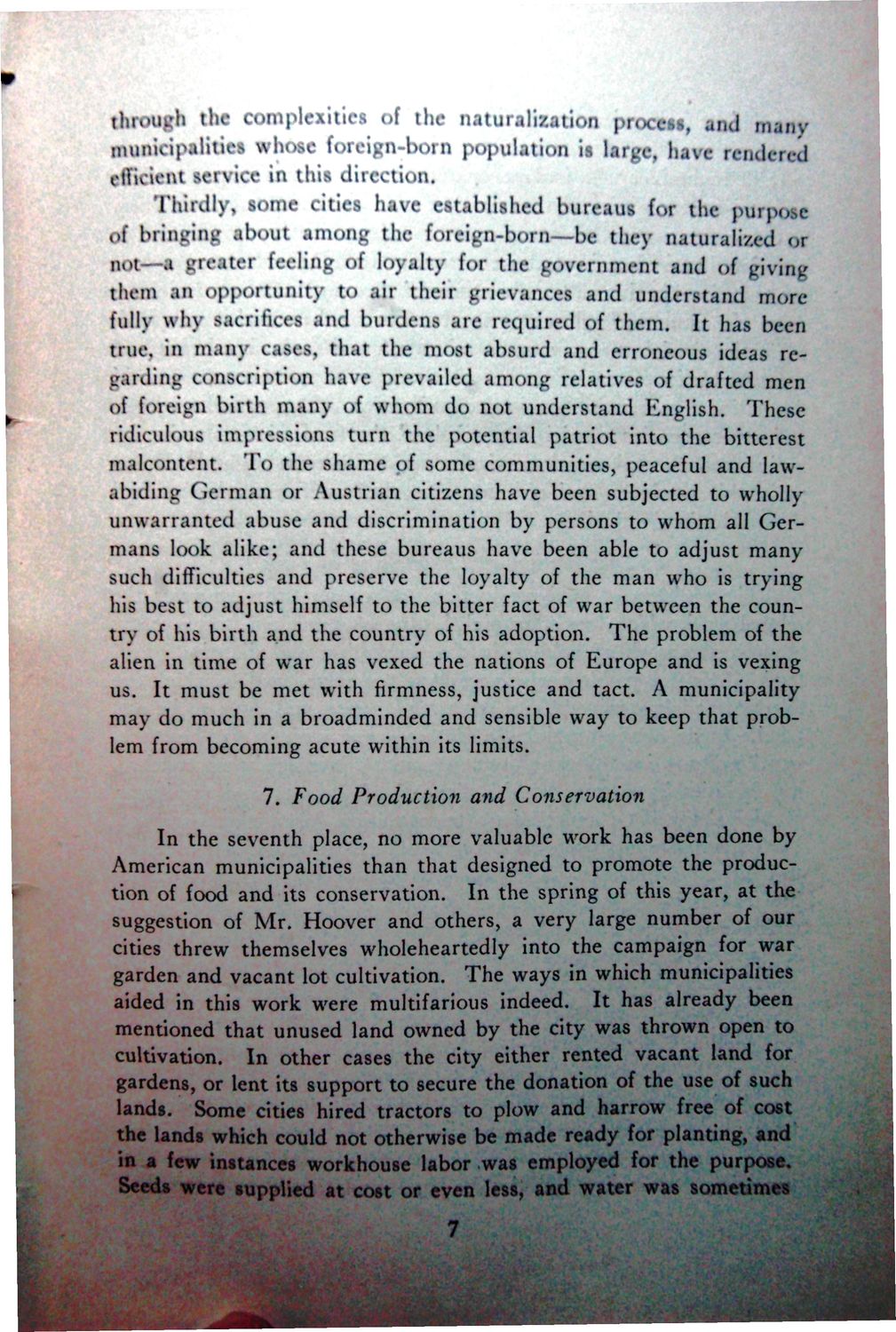| |
| |
Caption: War Publications - WWI Compilation 1923 - Article 3
This is a reduced-resolution page image for fast online browsing.

EXTRACTED TEXT FROM PAGE:
through the complexities of the naturalization j roceis, and many municipalities whose foreign-born population is large, have rendered efficient service in this direction. Thirdly, some cities have established bureaus for the puiposc of bringing about among the foreign-born—be they naturalized or not—a greater feeling of loyalty for the government and of m i n e them an opportunity to an their grievances and understand more fully why sacrifices and burdens are required of them. It has been true, in many cases, that the most absurd and erroneous ideas regarding conscription have prevailed among relatives of drafted men of foreign birth many of whom do not understand English, These ridiculous impressions turn the potential patriot into the bitterest malcontent. To the shame of some communities, peaceful and lawabiding German or Austrian citizens have been subjected to wholly unwarranted abuse and discrimination by persons to whom all Germans look alike; and these bureaus have been able to adjust many such difficulties and preserve the loyalty of the man who is trying his best to adjust himself to the bitter fact of war between the country of his birth and the country of his adoption. The problem of the alien in time of war has vexed the nations of Europe and is vexing us. It must be met with firmness, justice and tact. A municipality may do much in a broadminded and sensible way to keep that problem from becoming acute within its limits. 7. Food Production and Conservation * In the seventh place, no more valuable work has been done by American municipalities than that designed to promote the production of food and its conservation. In the spring of this year, at the suggestion of Mr. Hoover and others, a very large number of our cities threw themselves wholeheartedly into the campaign for war garden and vacant lot cultivation. The ways in which municipalities aided in this work were multifarious indeed. It has already been mentioned that unused land owned by the city was thrown open to cultivation. In other cases the city either rented vacant land for gardens, or lent its support to secure the donation of the use of such lands. Some cities hired tractors to plow and harrow free of cost the lands which could not otherwise be made ready for planting, and in a few instances workhouse labor was employed for the purpose. Seeds were supplied at cost or even less, and water was sometimes 7
| |